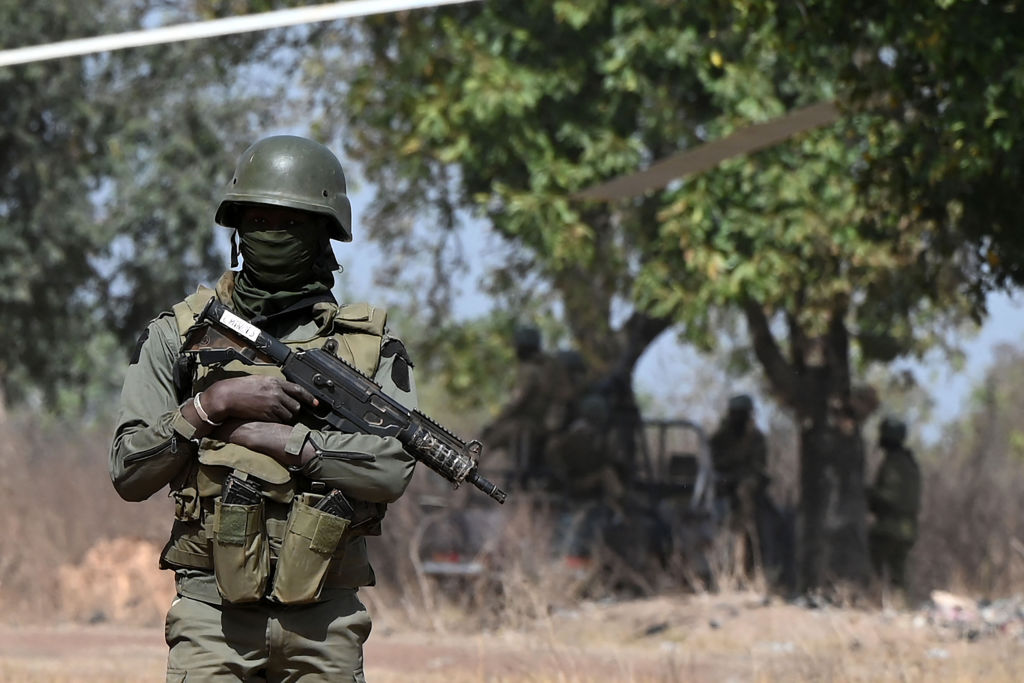ADF STAFF
Inside his shop in northern Côte d’Ivoire, 25-year-old tailor Bassina Konate demonstrates his expertise with the tools of his trade — a sewing machine, scissors, cloth and measuring tape.
His business in the town of Kong is open every day despite a scarcity of customers.
Underneath a calm, stoic demeanor, Konate expresses his frustration over the connected issues of rampant unemployment and his country’s response to the threat of terrorism that has been creeping south from the Sahel.
Kong is less than 100 kilometers from the border with Burkina Faso.
“There is not enough work here,” he told Voice of America. “There are many people who went to school, but as soon as they get their baccalaureate, they go to look for work elsewhere.
“If the government had set up companies and factories in the locality, young people would have had something to work with and make money.”
Armed groups linked to the Islamic State and al-Qaida increasingly have crossed the border to launch attacks in Côte d’Ivoire, as Islamist extremists seek to expand toward the Gulf of Guinea from their strongholds in Mali and Burkina Faso.
Ivorian authorities reported 13 cross-border attacks in 2021, which spurred increased militarization in the north and raised government concern over militants recruiting jobless young people.
In January 2022, Côte d’Ivoire announced a $55 million job creation program in the north.
As a technical advisor in the Ministry of Youth Employment, Frédéric Kabran oversees the Youth Employment Agency, which is charged with building skills, developing employment initiatives and supporting self-employment.
“The government analyzed the situation and understood that it was necessary to provide an economic response, a social response to this phenomenon,” he told VOA. “You can’t just come with armored tanks. You can’t just come with a military force just to fight terrorism.”
Prime Minister Patrick Achi said the job program is a key to securing the north.
“There are investments underway in the north to build more schools, hospitals, and industry and to occupy our youth to keep them away from the call of terrorists,” he told the media in late 2021.
At the same time, the government continues to prioritize its military response. In 2021, President Alassane Ouattara promised to spend 1% of the country’s GDP on equipment to prevent terrorists from entering the country.
Command units in the north were restructured into a single entity, police and security forces have been backed by new planes for border surveillance, and the recruitment of 3,000 additional Soldiers dedicated to the northern mission was announced at the end of April 2022.
The Ivorian army identified Comoé National Park along the border with Burkina Faso as a militant risk area, prompting Côte d’Ivoire to launch a new park management and security strategy on March 24, 2022, aiming to create and expand protected areas.
Achi also pointed to an investment of more than $430 million for the creation of a dry port and an integrated agro-industrial center in the town of Ferkessedougou near the northern border.
The projects are part of a series of investments in 2022 to expand cotton and cashew production, he said.
Ouattara made clear his twin intentions for security and economic action in the north in his State of the Nation address on April 19, 2022.
“The government will spare no effort to guarantee the security of people and property and will continue to make the means available to law enforcement, particularly in terms of intelligence, equipment and training,” he said.

